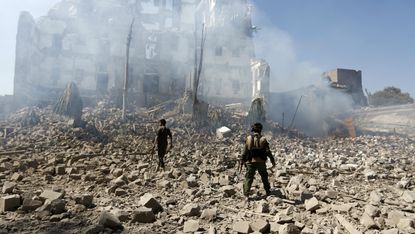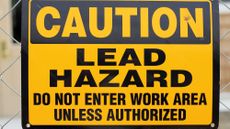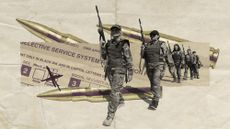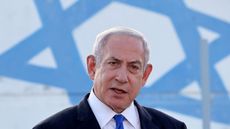What is happening in Yemen?
Activists warn of ‘worst famine in 100 years’ as Saudi-backed forces renew offensive on vital port city of Hodeida

The brutal civil war in Yemen appears to be on the brink of a significant turning point, as Saudi-led coalition forces prepare to launch a major offensive on the rebel-held port city of Hodeida.
Dozens of fighters have been killed in skirmishes between pro-government forces and rebels on the outskirts of the city, and Gulf News says a “showdown looms” between the two sides.
Described as “Yemen’s lifeline” by The Guardian, Hodeida has been subject to bombardments by Saudi-backed government forces since the civil war broke out in 2015. Prior to the conflict, it “handled most imports in a country where 90% of food had to be imported”.
Subscribe to The Week
Escape your echo chamber. Get the facts behind the news, plus analysis from multiple perspectives.

Sign up for The Week's Free Newsletters
From our morning news briefing to a weekly Good News Newsletter, get the best of The Week delivered directly to your inbox.
From our morning news briefing to a weekly Good News Newsletter, get the best of The Week delivered directly to your inbox.
The United Nations’ children’s agency, Unicef, has said that if the city is cut off from trade routes, Yemen’s already severe famine will worsen.
Conservative estimates suggest around 10,000 civilians have been killed in the war, and upwards of 14 million people are at risk of starvation. The UN has described the situation as the “world’s worst man-made humanitarian disaster”.
Last week, US Defence Secretary Jim Mattis called for a ceasefire to be implemented in Yemen by late November. But experts have suggested that a ceasefire might galvanise the Saudi coalition into further hostile action.
So is it too late for Yemen?
Yemen’s lifeline
Late last year, pro-government forces led by Saudi Arabia and the United Arab Emirates commenced an offensive against the Houthi rebels occupying the Al Hudaydah Governorate, of which Hodeida is the largest city. The Saudi-led forces cut off all supply lines to the city, which they said was being used “as a landing point for weapons supplied by Iran” - an accusation denied by both the rebels and Tehran, reports Al Jazeera.
In June, coalition forces reached the outskirts of the city. At the time, The New York Times reported that an assault on Hodeida would be “limited and swift” in order to “break the logjam [and] gain an upper hand in peace negotiations”.
However, Australian site News.com.au reports that the Houthi fighters “have entrenched themselves inside the city’s apartment buildings, hospitals and homes”, meaning any battle is likely to be a protracted one. “The Saudis are determined to drive them out by any means necessary”, the site adds.
The coalition is reported to have sent more than 10,000 new troops to the city last week, with a major offensive expected imminently.
Hunger pangs
Humanitarian groups say the outcome of the intense battle will determine the fate of civilians in and around the city, and potentially of millions more across the country.
Hodeida and its neighbouring governates are home to 40% of the 400,000 Yemeni children suffering from severe acute malnutrition, according to CNN. Up to 80% of Yemen’s humanitarian supplies, fuel and commercial goods are delivered through the city’s port, which means “the toll in lives could be catastrophic if the port is damaged, destroyed or blocked”, says Unicef.
UN experts from the World Food Programme say that the coalition’s blockade on aid into the country has put civilians at risk of “what could become the worst famine in 100 years”.
UN humanitarian chief Mark Lowcock has warned that an “apocalyptic” famine inflicting “huge loss of life” in Yemen could strike at any time - a situation exacerbated by an economic collapse that has seen the price of staple foods increase by 30%.
Ceasefire hope
On 31 October, US Defence Secretary Mattis and US Secretary of State Mike Pompeo called on all participants in the civil war to agree to a ceasefire “in the next 30 days”. Yet the Trump administration has sold billions of dollars’ worth of arms to Saudi Arabia and provided logistic and other support to the coalition.
News.com.au notes that this “sudden change of heart from the US” has sparked concern among experts, who believe the announcement may have “made things worse for those suffering, as the Saudi-backed pro-government forces have simply doubled down on their efforts to claim territory before any before any peace talks begin”.
“Ever since that announcement last week, the Saudis began pounding rebels with air strikes in the nation’s capital, Sana’a, in the mountainous northern provinces and, crucially, in the Red Sea port of Hodeida,” the site notes.
Create an account with the same email registered to your subscription to unlock access.
Sign up for Today's Best Articles in your inbox
A free daily email with the biggest news stories of the day – and the best features from TheWeek.com
-
 What to know when planning an awe-inspiring hike on the Inca Trail
What to know when planning an awe-inspiring hike on the Inca TrailThe Week Recommends Peru's most famous trail leads to Machu Picchu
By Catherine Garcia, The Week US Published
-
 Lead poisoning remains a threat
Lead poisoning remains a threatThe Explainer The toxin is built into our lives
By Devika Rao, The Week US Published
-
 Should you use a 529 plan? What to know about this college savings option.
Should you use a 529 plan? What to know about this college savings option.The Explainer This tax-advantaged savings account can be used to pay tuition or buy textbooks
By Becca Stanek, The Week US Published
-
 The issue of women and conscription
The issue of women and conscriptionUnder the radar Ukraine military adviser hints at widening draft to women, as other countries weigh defence options amid global insecurity
By Harriet Marsden, The Week UK Published
-
 Ukraine's unconventional approach to reconstruction
Ukraine's unconventional approach to reconstructionUnder the radar Digitally savvy nation uses popular app to file compensation claims, access funds and rebuild destroyed homes
By Harriet Marsden, The Week UK Published
-
 Growing turmoil in resource-rich Democratic Republic of Congo
Growing turmoil in resource-rich Democratic Republic of CongoUnder the Radar South African troops help army battle rebel groups in the world's leading cobalt producing country
By Harriet Marsden, The Week UK Published
-
 Will Ukraine's leadership reset work?
Will Ukraine's leadership reset work?Today's Big Question Zelenskyy hints at ousting of popular military chief, but risks backlash amid dwindling munitions, delayed funding and Russian bombardment
By Harriet Marsden, The Week UK Published
-
 Imran Khan sentenced to 10 years: how powerful is Pakistan's military?
Imran Khan sentenced to 10 years: how powerful is Pakistan's military?Today's Big Question The country's armed forces ignore country's economic woes, control its institutions and, critics say, engineer election results
By Harriet Marsden, The Week UK Published
-
 What is Iran's endgame?
What is Iran's endgame?Today's Big Question Tehran seeks to supplant US and Saudi Arabia as dominant power in Middle East while forcing Israel to end Gaza war
By Harriet Marsden, The Week UK Published
-
 Israel proposes two-month pause in Gaza war in exchange for all Hamas hostages
Israel proposes two-month pause in Gaza war in exchange for all Hamas hostagesSpeed Read Deal doesn't include an agreement to end war, but might be 'the only path that could lead to a ceasefire', said US officials
By Harriet Marsden, The Week UK Published
-
 Nato official warns of all-out war with Russia in next 20 years
Nato official warns of all-out war with Russia in next 20 yearsSpeed Read Civilians must prepare for life-changing conflict and mass mobilisation, says military chief
By Harriet Marsden, The Week UK Published